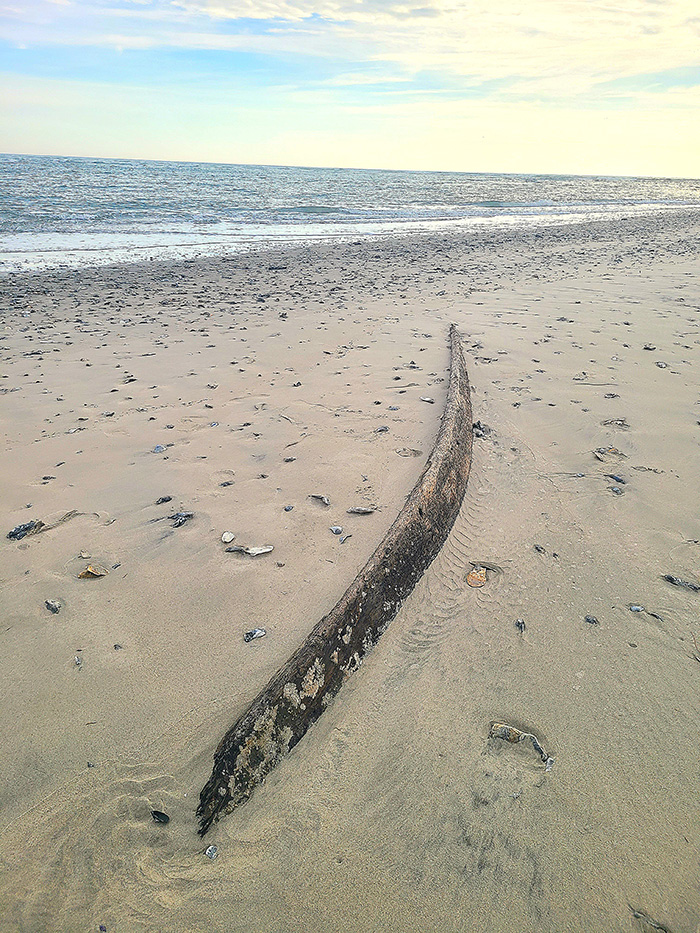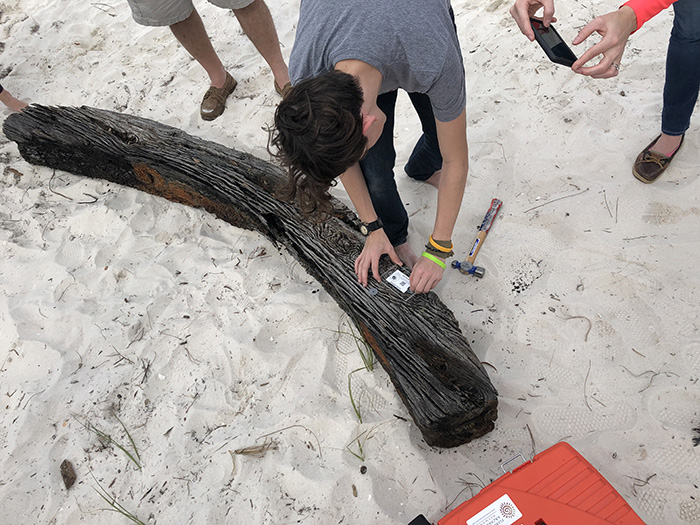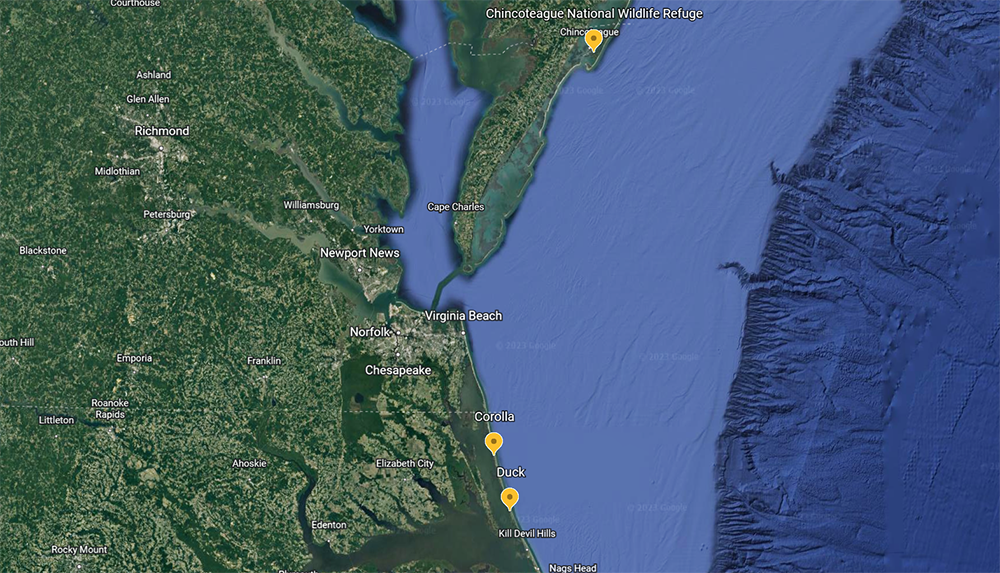The Shipwreck Tagging Archaeological Management Program (STAMP) is a public engagement program focused on
documenting and monitoring shipwreck sites and following the movement of shipwreck timbers along Maryland's
coasts. STAMP is part of a multistate program in which anyone can participate. As the originators of the
program, the information below has been adapted from the Florida STAMP website for consistency.
Why Monitor Shipwrecks?
Monitoring archaeological sites is vitally important to understand how sites change over time. Coastal
and near-shore submerged and semi-submerged sites are affected by erosion, wave action, storms, tides,
and currents, as well as human factors like vandalism and looting, construction, dredging, and
development. This can lead to them becoming detached from the hull, drifting out to sea, and then
washing ashore after traveling far distances.
By attaching permanent tags with QR codes to these timbers, anyone who finds one can scan the code
and learn more about the timber they have encountered and where it has travelled. By tracking these
movements, we can learn about site formation, destruction, and general changes, in addition to how
and where pieces of shipwrecks may move. The study of these processes can aid in the management
of significant heritage resources.
 Disarticulated timber. Photo: Nick Price
Disarticulated timber. Photo: Nick Price
 Photo: Austin Burkhard
Photo: Austin Burkhard
How Can You Help?
Through STAMP, we are encouraging the public to work as citizen scientists! Efforts by STAMP volunteers
will allow archaeologists to collect data to plot how coastal shipwreck sites physically change and how
detached timbers may move over time. By monitoring these dynamic sites, we hope to learn how to manage
these fragile and finite resources more effectively. Volunteers can join workshops and events to learn
how to tag vessels and submit information about them to the databases. If tagged timbers are encountered,
the tags include instructions on how to report their location and how to learn more about them. At present,
partners involved in STAMP include the States of Maryland, Florida, and Virginia; the National Park
Service; and the archaeology firm, SEARCH so volunteers can participate in a number of places.
What Have We Learned So Far?

STAMP was modeled on a shipwreck tagging program that began in the summer of 2013 as a project of the
Fish and Wildlife Service at the Chincoteague National Wildlife Refuge. While many people think that
detached shipwreck timbers found on shorelines and beaches must be near a ship's original wreck site,
this is not necessarily the case. For example, a three-meter-long timber was first tagged in September
2014, and a year later is had moved roughly 40 meters. In 2015, however, Chincoteague National Wildlife
Refuge was hit with several harsh winter storms, and by January 2016 the timber had traveled at least
106 miles to Corolla, North Carolina—though it’s likely it traveled even further than that since it
is impossible for the timber to have floated in a straight line. Today, the timber has been reported
by the public 15 miles south of Corolla in Duck, North Carolina, so it is still on the move! These
data help archaeologists to consider how far shipwreck timbers could move in 50, 100, or even
200 years!
How It Works
Each tag has two QR codes. The QR code on the top leads to the database at the
Florida
Public Archaeology Network, where the movements of the timber bearing that tag number are
recorded. The QR code on the bottom leads to a detail page,
where PDF files about each timber or site will be listed.